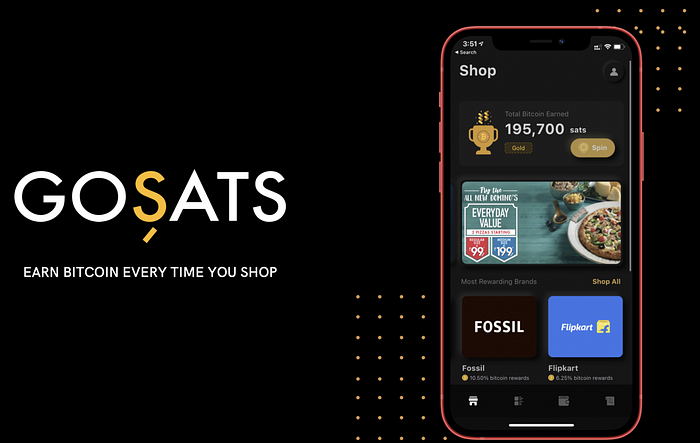Shopping has historically been identified as therapeutic, which helps in emotion regulation and better well-being, a term more commonly known as retail therapy. Additionally, it’s always part of the thrill to shop around to find the best deals, looking for matching credit card reward points, or exclusive offers. That serendipity of finding a good deal just makes shopping all the more fun, a period for bonding among family/friends, a time to chill out and relax, but more importantly an activity that intrigues your senses by finding what you love and owning it.
India, a population of 1.36bn and rising rapidly, with a growing affluent middle class and tech-savvy crowd, online/offline shopping is fast becoming a favourite pastime for most. The exposure to new ideas, trends and technologies have also altered consumer behaviour in India, shifting the focus of purchasing and owning physical items to a wider spectrum of consuming and spending more on experiences, customized products, and time-saving services. This sets India on the path to become the third-largest country globally in consumer spending within the next decade.
Bitcoin a peer-to-peer electronic cash system is gaining prominence in India due to various reasons such as 1) the tech-savviness of Indians which makes Bitcoin a natural topic of interest and generally being more open to it. 2) A hedge against inflation as India’s Consumer Price Index (CPI) hovers above Reserve Bank of India’s (RBI) comfort level for 11 out of the last 12 months and a guard against currency devaluation which occurred in three separate instances since India’s independence in 1947 has spurred Indians to look for an alternative asset to store their wealth. 3) An entrepreneurial spirit among the community, tinkering around new technologies has naturally turned to blockchain technology as a solution to many existing problems. Prominent thought leaders like Balaji Srinivasan, Naval Ravikant, and many others, where the community looks up to as successful tech entrepreneurs who are advocating and nurturing the budding startup scene in India have also been early adopters of bitcoin.
With blockchain technology maturing and stretching across multiple industries (e.g. finance, art, gaming, etc) and retail commerce remains one of the sector that is relevant to a wide-ranging audience base, these vastly different sectors will inevitably cross paths. As the two industries intersect limitless possibilities emerges, entrepreneurs building in the space are bound to benefit from the opportunities that arise from it.
GoSats is uniquely positioned at this cross-section with its product offerings, catering to consumers with increasing spending power on goods and services and a growing interest in owning digital assets. The perception towards bitcoin has changed in recent years and is quickly becoming the go-to asset for Indians who were always known for being ardent investors of gold. By rewarding consumers with sats (the smallest unit of bitcoin) whenever they spend, it creates a feedback loop where users are getting an appreciating asset whenever they spend, improves their experience significantly. Traditionally, loyalty/reward points have mixed successes and limited benefits due to their fragmented market and are not interchangeable across different loyalty/reward programs.

How GoSats work? — By shopping via GoSats mobile app or browser extension with one of the 120+(and rapidly growing) list of partner brands of GoSats, a percentage of the sale goes to GoSats and is then converted into sats, which will be deposited into users’ GoSats bitcoin wallet.
The adoption of blockchain technology and the importance of bitcoin as a store of value / global settlement layer has gained significant traction over the years, however, when we look at the historical adoption curve of technology, we’re still in the early phases. To onboard the next billion users onto blockchain-powered applications and owning digital assets, it needs to be risk-free and the experience has to be seamless and low-friction. What’s more intuitive than marrying retail shopping with receiving digital assets(bitcoins) as rewards, which explains why I’m passionate about the intersection between bitcoin and the retail commerce industry.
Using GoSats as an example, within five months of going live in the Indian market, they’ve onboarded more than 15,000 customers(most have never held bitcoin before they signed up for GoSats) and more than 120 partner brands, including household brands such as Flipkart, Amazon, Swiggy, and more. This clearly illustrates the unique value proposition of Retail Commerce x Digital Assets mashup.
In addition to bitcoin rewards, I’m deeply intrigued by the new possibilities that blockchain technology creates when applied to the retail commerce industry, in the following paragraphs I’ll explore a couple of ideas that I feel ardently about.
Building on the unified rewards experience that products like GoSats is offering, another possibility that I’m excited about is the option to gamify the shopping experience. Rewards x Digital Assets products are in a unique position whereby their target audience/touchpoints are relatively wide-ranging which enables these products to make a huge impact in inculcating positive/responsible spending habits through key areas of interest (shopping and digital assets) with gamification. Having a full-featured expense tracker allows users to get a clear overview of their spending habits, with timely tips and reminders to help them remain prudent in their spending. Additionally, through a similar rewards system, sats are rewarded when users maintain a streak of on-time repayment of bills or have made a well-intentioned spending decision. This further solidifies the overall experience users have on their product, for not only being the best go-to rewards wallet, but also a reliable finance management app.

Another complementary feature to introduce on top of spending rewards are savings option within Rewards wallet, which encourage users to cultivate good spending habits, supercharged by decentralized finance (DeFi) solutions. Using GoSats as an example, whenever a customer shops through them and earn sats, these sats are stored in their GoSats wallet generating yields, thus empowering users to save the sats they’ve received and accumulate wealth over time. In addition, DeFi solutions go beyond yield generating savings products into microfinancing options — lending to their communities to empower aspiring entrepreneurs, or micro-investments via robo-advisors, etc. Thereby creating a generation of tech-savvy and financially prudent consumers.
One may wonder if DeFi options are available on the Bitcoin network? There are multiple protocols such as Stacks, Lightning Network, and many others that are bringing scalability and programmability to the Bitcoin network, giving developers the best of both worlds(the ease of writing smart contracts with the security of the Bitcoin network).
With lots of innovations happening around blockchain technology, the above are just some possibilities that I find fascinating to tinker on that could potentially allow users to further benefit from their shopping rewards. Recycling the bitcoins they earned back into the community while at the same time growing their digital assets. Thus making Rewards x Digital Assets product combination, truly a one of kind in the market where users get rewarded for spending and at the same time being rewarded for saving. Thereby making shopping a whole lot more satisfying!


